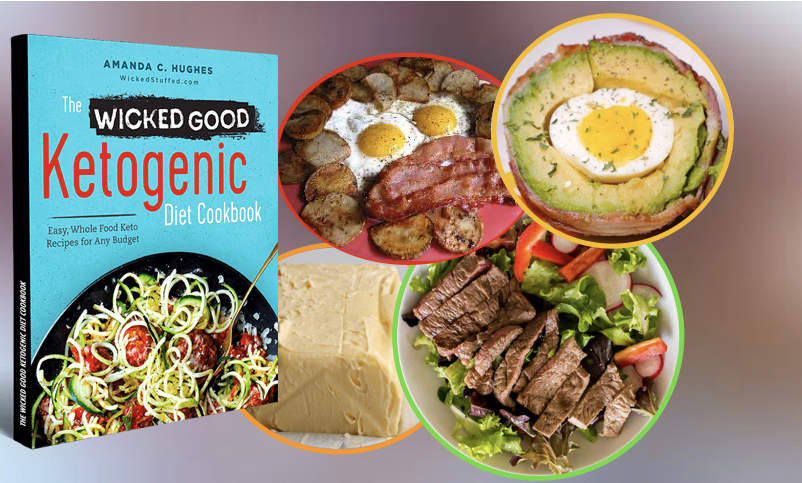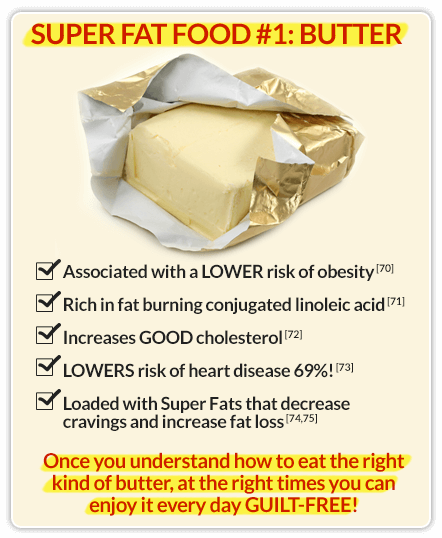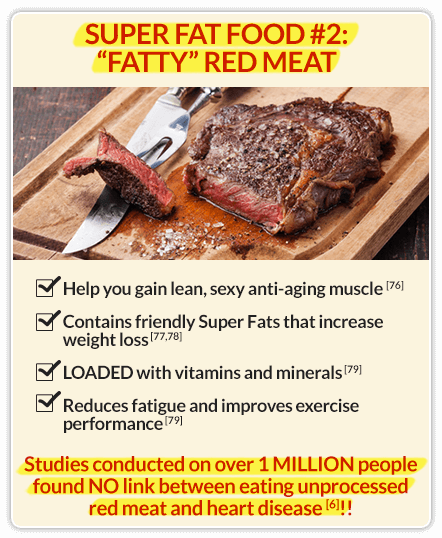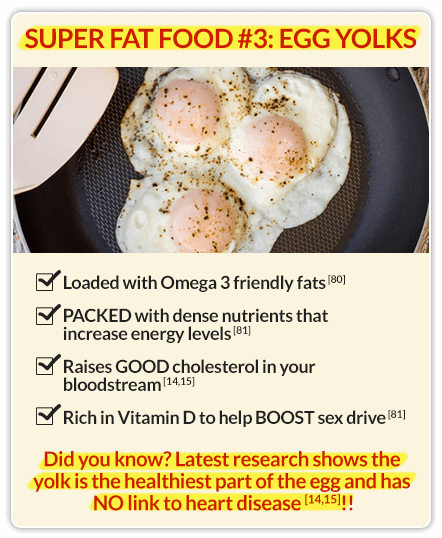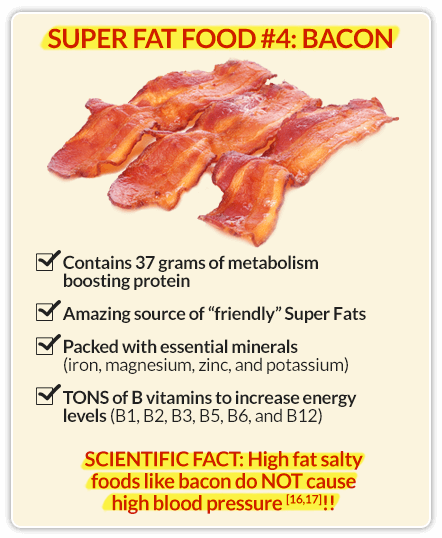Breakthrough Research Reveals…4 SUPER FATS You Should Be Eating In Your Keto Diet Plan To Incinerate Stubborn Fat, While Looking Younger & Living Longer
By: Instagram Influncer Tim Ernst – Founder of Keto Burn 20, Intermittent Keto Fasting
Did you know that French people are skinnier than the rest of the world even though they eat butter, bacon, cheese, whole eggs, fatty meats, and creamy sauces every day?
They look younger… they live longer… and they do it WITHOUT dieting, exercising, or eating any of the foods U.S. doctors and dietitians have been recommending to us for years [1].
Scientists, doctors, and health experts call this “The French Paradox” and—believe it or not—it holds the missing link to forcing your body to incinerate the most stubborn fat stuck around your belly, hips, thighs, and backside.
This long-lost diet secret was actually discovered way back in 1924 and it will forever change your approach to losing belly fat and avoiding today’s most deadly diseases.
So what exactly is this French fat burning and longevity secret?
Believe it or not, a HIGH intake of a special group of rarely-talked about fats is what defines The French Paradox.
But not just any kind of fats…
SUPER FATS.
Before I share how this IS possible simply by eating a diet that is rich in these newly discovered Super Fats there’s something else you MUST know and understand if you ever want to achieve the lean, healthy body you so deeply desire.
It’s NOT your fault. Seriously.
You’ve been lied to. I’ve been lied to. We’ve ALL been lied to.
Fatty foods are NOT to be feared!
Scientific research shows that when you eat SUPER FATS your body STOPS holding on to its own fat …
The reason it holds onto it is because it “thinks” it NEEDS it…
… So when you provide your body with the optimal amount, and even more importantly, when you eat them consistently at the right times every day—your body switches fuel sources so stored body fat can be used as a direct source of energy.
This was a huge wake up call for me…
EDITORS NOTE: Knowing what and how much to eat for weight loss is critical towards your success.
If you’re not sure how to calculate your calories in order to burn fat, Get Your Free Fat Burning Calorie Calculator For Quick Weight Loss & Burn More Fat Than You Thought Possible In 30 Days=> Fat Burning Calculator
I was always taught through my nutrition certifications and college education that these Super Fats are evil and needed to be avoided at all costs because they are responsible for visceral belly fat and today’s life-threatening diseases.
As you’ll soon discover: I was DEAD WRONG.
Here are 4 BLATANT LIES The Food & Medical Industry Uses To KEEP You Fat & Sick.
SUPER FAT FOOD LIE #1: Eating Fatty Foods Will Make You Fat & Saturated Fats Cause Heart Attacks

… This is exactly what the Standard American Low Fat Diet (aka-SAD) has recommended all over the world for decades.
This “low-fat craze” that has long dominated the world of nutrition has led us all to believe that we should shun fats altogether, and instead eat more processed carbohydrates.
The result?
We’re fatter than ever. We’re sicker than ever. Childhood obesity rates have skyrocketed…
And we are now more addicted to fattening carbs and sugar than any other time in history, which leaves us dependent on burning sugars for fuel making it nearly impossible to lose belly fat…
Harvard research even cited several studies concluding the USDA food guide pyramid pushing the “low fat agenda” is fraudulent [2].
“A growing body of evidence has been pointing to its (low fat diets) inadequacy for weight loss or prevention of heart disease and several cancers.”
Another study published in 2011 gathered data from 21 studies and included nearly 348,000 adults, found NO difference in the risks of heart disease and stroke between people with the lowest and highest intakes of saturated fat [3].
Countless studies now prove saturated fats from the right food sources have NOTHING to do with heart disease and sickness [4,5].
In fact, it’s the exact opposite of what you’ve been misled to believe…
… Super Fat foods like butter, for example, are rich in essential fats and rarely consumed vitamins like K2, which can reduce the risk of heart disease by a whopping 69% [6].
You just have to understand how to eat the right kind of butter… at the right times… along with what foods to eat it with to ensure you experience each and every one of these same amazing health benefits.
SUPER FAT FOOD LIE #2: Red Meat Is Fattening, Causes Cancer & Shortens Life Span

… But the actual published research proves once and for all these are just MYTHS.
In 2010 there was a huge study published where researchers collected data from twenty studies done on over 1 million people.
The result? They found NO link between consumption of unprocessed red meat and heart disease [7].
There was also more research conducted in Europe where they followed over 400,000 people and found NO link between unprocessed red meat and these diseases [8].
Additionally, history shows that the RIGHT TYPE of fatty red meat eaten at the right time is one of the most nutritious foods you can eat.
It’s loaded with Super Fats… protein… vitamins… minerals… antioxidants and other fat burning nutrients that can help you live longer, feel better, build muscle, and burn more belly fat.
As long as you eat the RIGHT types of red meat, you can indulge in your favorite greasy steak “guilt free”—all while extending your lifespan and achieving your weight loss goals even faster.
Can’t you just smell the Super Fat steak sizzling right now?
And you can rest easy knowing that history (and science) proves [6,7] every bite is taking you closer to your health and longevity goals.
It is time to retire the low-fat diet fad once and for all!
SUPER FAT FOOD LIE #3: Cholesterol Found In Fatty Foods Clogs Your Arteries & Leads To Heart Disease
Ready?
Evidence-based research shows the amount of cholesterol you have in your diet has little to NO effect on cholesterol levels found in your blood [8,9].
What about cholesterol being linked to heart disease?
It’s another myth.
The most recent, high-quality studies have shown that foods containing cholesterol are NOT associated with an increased risk of heart disease [12,13].
As your dietary intake of cholesterol goes down, your body simply adapts by making more. Conversely, when you eat larger amounts of cholesterol, your body makes LESS because you’re getting it from a high quality food source [10,11].
This is how your body works to maintain the proper balance in your bloodstream.
Egg yolks are the perfect example because it’s the healthiest part of an egg. They’re loaded with nutrient dense, antioxidant-rich, vitamins and minerals.
In fact, whole eggs have been shown to raise the GOOD cholesterol inside your body and therefore, their cholesterol content is NOT associated with increased risk of heart disease [14,15].
All of this means one thing: the calories derived from egg yolks contain dense nutrients like folate, selenium, zinc, iron, phosphorus, vitamin B-12 and B-6 that instantly convert to an energy source which can help you lose more belly fat.
Of course, just like anything in life, more is not necessarily better… keep reading and I’ll show you when and how to eat egg yolks to achieve a leaner, healthier body in record time.
SUPER FAT FOOD LIE #4: High Fat Foods With Lots Of Salt Cause High Blood Pressure & Belly Bloat

He forced each rat to eat the human equivalent of 500 grams of sodium a day, which caused the rats high blood pressure.
But who REALLY consumes 500 grams of sodium a day? Nobody.
The average daily sodium intake for Americans age 2 years and older is 3,436 mg, which is 145 times LOWER than the amount this study used.
Here we are more than 40 years later… after the CDC, FDA and all the other clueless organizations started demonizing salt, not ONE single study has ever proven that salt causes hypertension – because it doesn’t.
The irony? Research shows avoiding salt can be more dangerous.
Two published research studies show that LOW sodium can lead to insulin resistance [16] and increased risks of stroke and heart attacks [17].
This is why high sodium fatty foods, like bacon, should be a staple in your diet.
Most people assume this delicious fatty food will clog up your arteries and give you high blood pressure…
… But truth be told when bacon is consumed in moderation it can be an amazing fat burning food.
First of all, bacon is loaded with “friendly” Super Fats.
A pasture-raised portion of bacon is about 50% monounsaturated, 40% saturated and 10% polyunsaturated.
Bacon is also surprisingly nutritious: A typical 100 gram portion contains 37 grams of protein, tons of B vitamins (B1, B2, B3, B5, B6 and B12), selenium, phosphorus, iron, magnesium, zinc and potassium.
What about the nitrates?
Finally, the nitrates in bacon are NOT harmful to your health like previously thought.
In fact, vegetables are loaded with nitrates and even our saliva contains more nitrates than bacon and veggies combined.
And guess what?
These high fat salty foods are staples that have been part of the French lifestyle for years now…
… a clear indication of why they are skinnier and live longer than the rest of the world.
Research confirms once and for all eating Super Fats like butter… fatty red meats… egg yolks… and bacon at the right times and in the right amounts can extend your lifespan, protect you from deadly diseases, and quickly convert your stored fat into usable energy…
Just like they do for the French!
… And this is really only the tip of the iceberg.
Conclusion:
The ketogenic diet is the hottest diet of 2018 because it helps you quickly lose stubborn fat… it reduces fat storing inflammation… it helps you live longer and avoid today’s most deadly diseases.
But there are several problems that accompany a “traditional” high fat keto diet:
- You like to eat carbs?….You are out of ketosis.
- Want to eat some healthy, ripe fruits that are in season?….You are out of ketosis.
- Too much protein in that delicious steak or bacon you just ate?….You are out of ketosis.
- Want to have a glass (or two) or red wine, a few beers, or cocktails? You guessed right….You are out of ketosis.
Bottom line:
Permanent ketosis is not healthy, fun, OR realistic for anybody to follow long term, which is exactly why there’s a new, upgraded version that produces rapid results in only 14 days
It’s called, The “Targeted” Keto Diet and people have used it to drop pounds of unwanted belly flab, WITHOUT avoiding carbs, desserts, or alcohol
It all started by eating the 4 SUPER FATS below at the right time over a very short 14 day period (a few of them are probably in your kitchen right now)…
[1] https://www.ncbi.nlm.nih.gov/pmc/articles/PMC1768013/
[2] https://www.hsph.harvard.edu/nutritionsource/2006/02/09/low-fat-diet-not-a-cure-all-womens-health-initiative/ https://authoritynutrition.com/23-studies-on-low-carb-and-low-fat-diets/
[3] http://www.ncbi.nlm.nih.gov/pubmed/20071648
[4] http://bjsm.bmj.com/content/early/2008/06/03/bjsm.2007.044966.abstract
[5] http://ajcn.nutrition.org/content/early/2010/01/13/ajcn.2009.27725.abstract http://www.nutritionjrnl.com/article/S0899-9007(11)00314-5/abstract
[6] www.nature.com/ejcn/journal/v64/n6/abs/ejcn201045a.html
[7] http://www.ncbi.nlm.nih.gov/pmc/articles/PMC2885952/
[8] https://www.ncbi.nlm.nih.gov/pubmed/26109578
[9] https://www.ncbi.nlm.nih.gov/pubmed/7585286
[10] https://www.ncbi.nlm.nih.gov/pubmed/22037012
[11] https://www.ncbi.nlm.nih.gov/pubmed/8857917
[12] https://www.ncbi.nlm.nih.gov/pubmed/19751443
[13] http://ajcn.nutrition.org/content/102/2/276.full
[14] http://www.bmj.com/content/346/bmj.e8539
[15] http://www.ncbi.nlm.nih.gov/pubmed/19369056
[16] http://www.ncbi.nlm.nih.gov/pubmed/21036373
[17] http://www.sciencedaily.com/releases/2011/11/111123132935.htm
